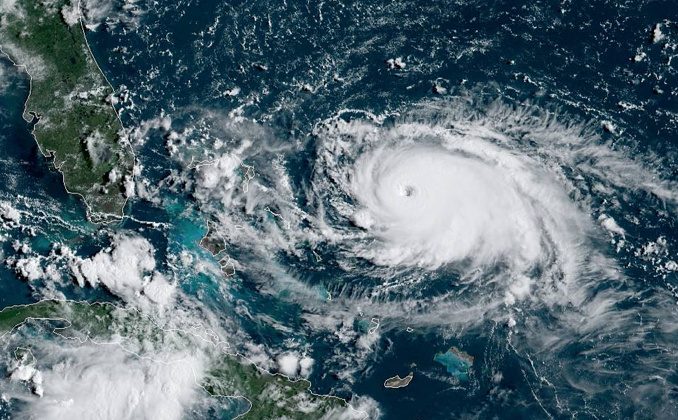Atlantic Hurricane Season peaks in August and September, but we were warned as early as the spring. It will be a very active season, and I bought into that. It’s been a long time coming. We’re due. The Atlantic water is warm (boiling, depending on who you ask), and we have this La Nina thing they keep talking about. But that supersized hurricane season has yet to materialize. It has to have them getting nervous. Kamala became election year plan B, so what about this?
The planet uses hurricanes to move energy from the equator northward. The more significant the difference in energy (temperature-wise) between the two, the more activity we are told to expect. More of them, more landfalls, stronger storms. So, where the hell are they? Beryl eventually made landfall as a CAT 1. Debby barely made landfall as a CAT 1. Ernesto is puttering north across the Atlantic as I write this (nowhere near land and peaking at Cat 2), much to the dismay of everyone waiting for the shoe to drop. And it still could. The next six weeks are the sweet spot, with September 10th (ish) being the heart of the beast—traditionally the most active day of the season, but the ocean is not cooperating, and we have predictions to hit.
Basin Forecast
Names Storms 25-30 (We’ve had 5)
Hurricanes 14-16 (three)
Major Hurricanes 6-8 (zero – Beryl got strong but weakened before it reached land, so – maybe 1)
Impact Forecast
Named storm Impacts 10-14
Hurricane Impacts 5-8
Major Hurricane Impacts 3-5
We can get there from here, but the “basin” must turn things up a notch. The current one-storm-at-a-time schtick won’t do. By the way, we’ve got historical data on Tropical storms, hurricanes, and major hurricanes here. The trend does not favor the alarmists, so they have likely pinned their hopes on the 2024 season being a devastating monster on which to hang their global warming hat. Except that, as we’ve already shown, the science on how warming leads to fewer hurricanes. As noted above, the storms move energy. If the planet warms and the difference between the equator and the pole declines, fewer storms will occur. The history and data prove that. And maybe that’s the fly in their ointment. The water can be warm, but if there’s not enough variation in temperature from south to north, there’s no atmosphere needed to move the energy.
I don’t know. We haven’t had a monster year for hurricanes or even a freight train of storms, big or not, in a while. The season is nearing its peak, and we’ve seen nothing unusual. The west coast of Africa should begin churning them out like mad as the basin spits them all over. That sort of activity guarantees the kind of season we’ve been waiting for – but I have to think the climate cult has started drinking heavily, worried that it’s not going to come. They’ll blame it on warming; weirdly, it’ll be one of the few times they got it right.
They won’t remind you that the Tonga underwater explosion is probably to blame for screwing up their hurricane season, but you can’t expect too much truth from them – they don’t get paid to do that, so they’ve probably forgotten how.
Note: The Pacific has been more active than in previous years, so total cyclonic energy could uptick, but that’s not what the American elites are looking for.
GraniteGrok.com is a reader-supported endeavor, and we can’t continue without your support. Please consider a monthly subscription donation. It goes a long way to helping offset the rising cost of everything. One-time donations are also always welcome. If you would like to donate by check, email me at steve@granitegrok.com.
